Search
Did you mean: Slavs?
Search Results

Article
Norse-Viking Diet
In many depictions of Vikings, whether in film or other media, a group is often seen gathered around a flaming pit while an animal of some type – usually a boar – turns on a spit above. While the people of Scandinavia certainly ate meat...
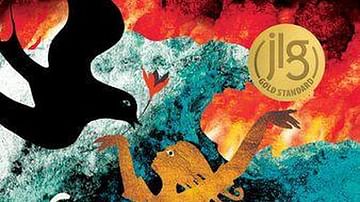
Interview
Interview: Swallow's Dance by Wendy Orr
In this interview, Ancient History Encyclopedia is speaking with Wendy Orr, the rather prolific author of numerous books who has recently published the book Swallow's Dance. It is a book of historical fiction set in the Bronze Age Aegean...

Image Gallery
A Gallery of Mesopotamian Religion
Mesopotamian religion was informed by the belief that humans were co-workers with the gods in maintaining the order created at the beginning of time and so religious expression was integral to daily life in ancient Mesopotamia in how they...

Definition
Ancient India
India is a country in South Asia whose name comes from the Indus River. The name 'Bharata' is used as a designation for the country in their constitution referencing the ancient mythological emperor, Bharata, whose story is told, in part...
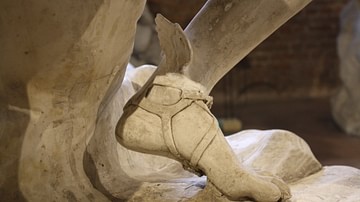
Definition
Hermes - The Messenger of the Olympian Gods
Hermes was the ancient Greek god of trade, wealth, luck, fertility, animal husbandry, sleep, language, thieves, and travel. One of the cleverest and most mischievous of the 12 Olympian gods, Hermes was their herald and messenger. In that...
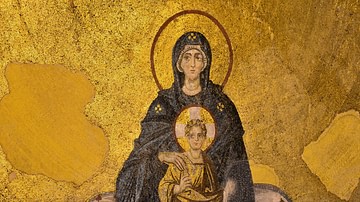
Definition
Byzantine Empire
The Byzantine Empire existed from 330 to 1453. It is often called the Eastern Roman Empire or simply Byzantium. The Byzantine capital was founded at Constantinople by Constantine I (r. 306-337). The Byzantine Empire varied in size over the...
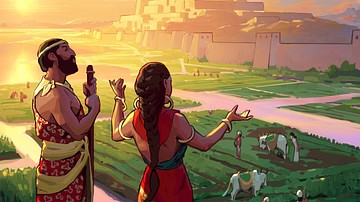
Definition
Civilization
Civilization (from the Latin civis=citizen and civitas=city) is a term applied to any society which has developed a writing system, government, production of surplus food, division of labor, and urbanization. The term is difficult to define...
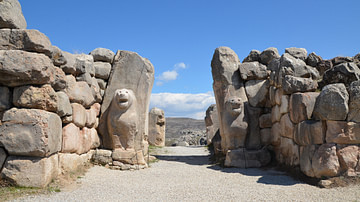
Definition
The Hittites
The Hittites occupied the ancient region of Anatolia (also known as Asia Minor, modern-day Turkey) prior to 1700 BCE, developed a culture apparently from the indigenous Hatti (and possibly the Hurrian) people, and expanded their territories...
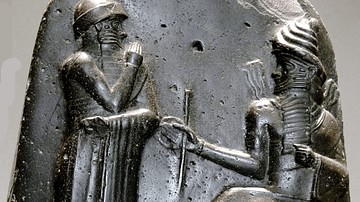
Definition
Hammurabi
Hammurabi (r. 1792-1750 BCE) was the sixth king of the Amorite First Dynasty of Babylon best known for his famous law code which served as the model for others, including the Mosaic Law of the Bible. He was the first ruler able to successfully...
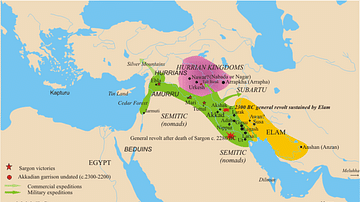
Definition
Akkad and the Akkadian Empire
Akkad was the seat of the Akkadian Empire (2334-2218 BCE), the first multi-national political entity in the world, founded by Sargon the Great (r. 2334-2279 BCE) who unified Mesopotamia under his rule and set the model for later Mesopotamian...